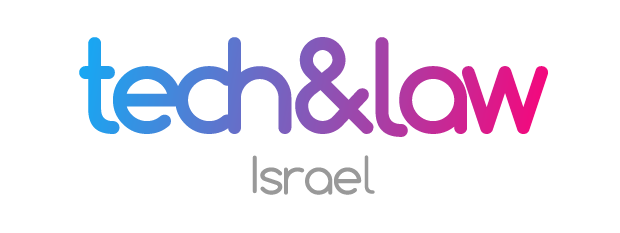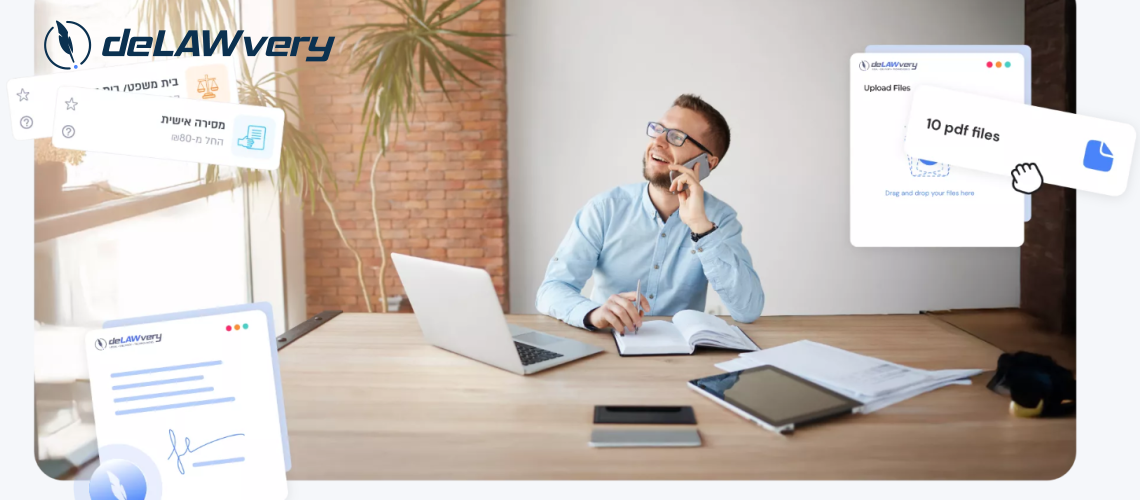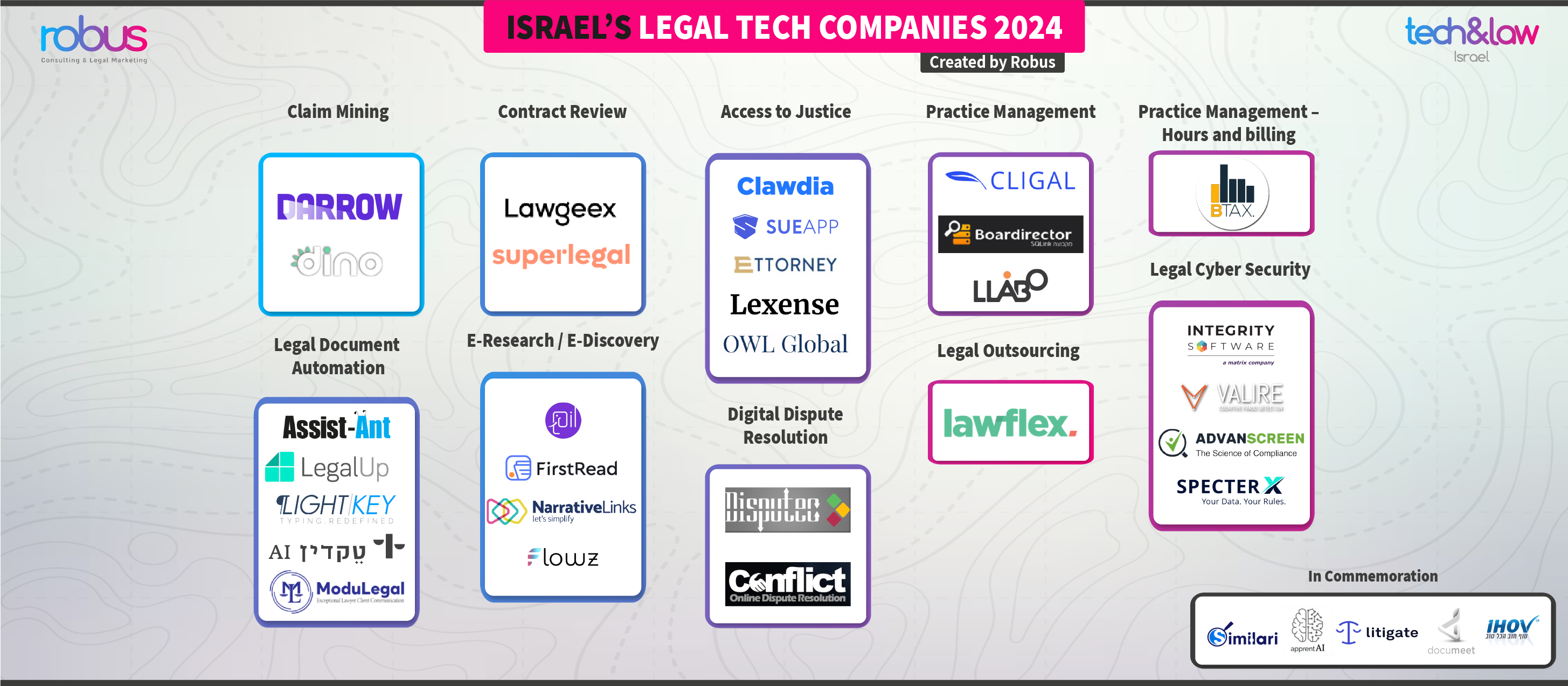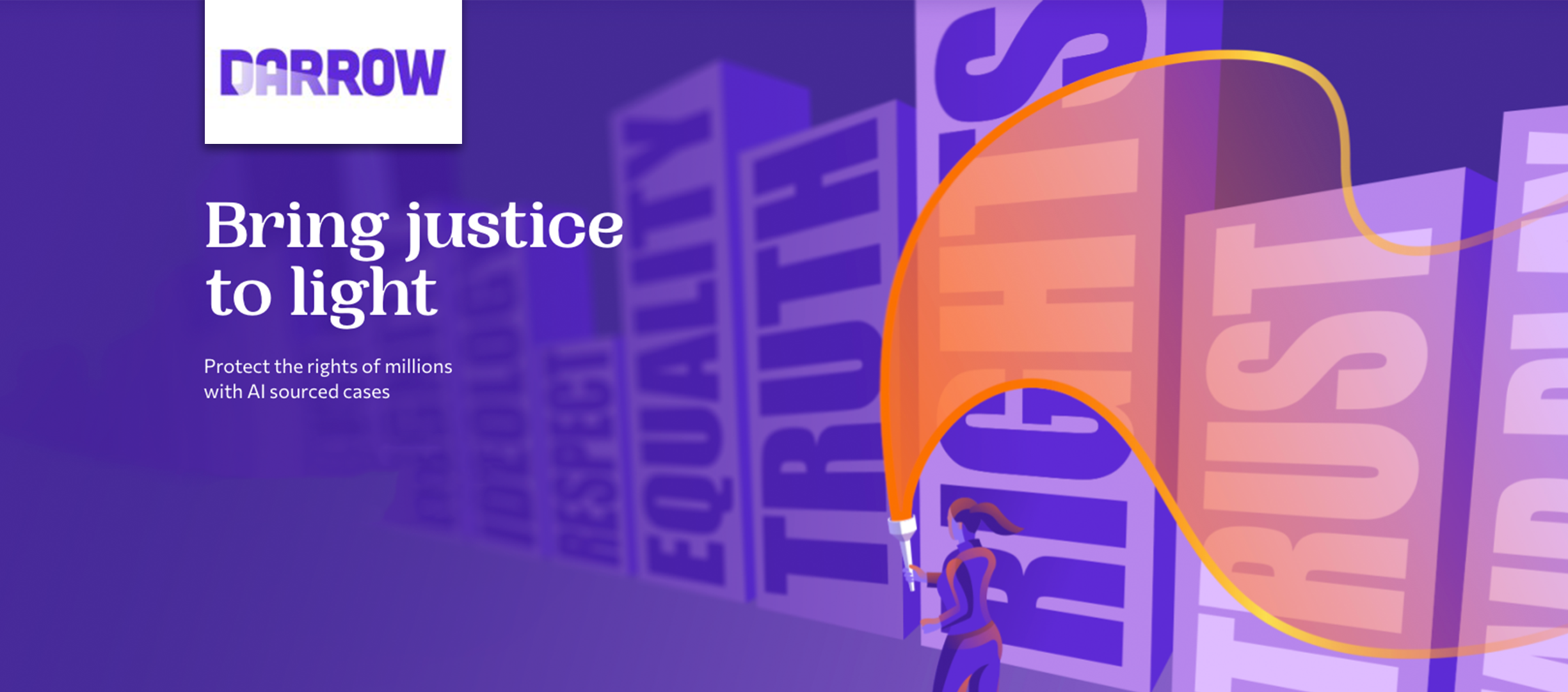
Lillian Sherman
I had the pleasure of interviewing Omer Beit-On and Jonathan Ganor, co-founders of Delawvery – an Israeli legal-tech start-up that has revolutionized the process of legal document delivery. Founded in 2020, Delawvery has reshaped legal document delivery, significantly improving visibility, efficiency, and costs for law firms. Omer and Jonathan shared their entrepreneurship journey with me, providing valuable insights into the fascinating intersection between technology and law.
Tell me a little bit about Delawvery and what inspired you to create it. What specific pain point in the legal delivery process led you to found Delawvery?
For Omer, a practicing lawyer turned legal tech entrepreneur, Delawvery was born out of personal frustration. “I was wasting hours every week chasing couriers, calling vendors, emailing for price quotes and it was outdated and inefficient,” he explained. The legal delivery process lacked transparency and ease, unlike nearly every other service in modern life.
This pain point sparked the idea for Omer. He thought what if the legal industry could benefit from the same level of efficiency and visibility that we see in food delivery or ridesharing apps? “I kept wondering why I can track my groceries but not a critical legal document?” Omer said. That contrast fueled the development of a smarter, faster, and more transparent way to handle the service of legal documents. The idea became Delawvery, and shortly after, Jonathan joined Omer as co-founder. Since then, the rest is history.
How did your own career backgrounds shape your creation of Delawvery? How did it help you?
Omer brought the legal expertise. Having experienced the problem firsthand, he understood the urgency and sensitivity surrounding legal document delivery. For example, what the process requires by law, and what clients need to feel secure. He knew what had to be done and what wasn’t working.
Jonathan, Omer’s brother-in-law, brought the technical background. “I don’t have a legal background, but I’ve always been the tech guy,” he said. With experience managing software projects and creating systems from complex problems, Jonathan was perfectly suited to translate Omer’s legal vision into a functional platform.
Together, they formed a complementary duo: Omer had the domain knowledge and customer insight while Jonathan had the system-building skills. “We combine legal expertise with smart logistics and software design,” Omer said. “That’s the core of Delawvery.” Their career backgrounds helped they form the smart platform and wonderful partnership they have today.
Can you walk us through the core technology behind Delawvery? What makes it unique and how does it work?
Delawvery’s technology consists of several layers: operations, logistics, customer-facing tools, and legal intelligence.
On the client side, users simply upload documents, choose printing options, and submit orders directly through the platform. Smart pricing is shown upfront. From there, the system automatically assigns the task to the most suitable server based on location and expertise. Documents are printed at one of 35 partner centers across Israel which are always near the delivery address, significantly reducing time and cost.
Once the documents are printed, they are picked up by a courier and the serving process begins. After delivery, Delawvery generates a court-ready affidavit, often in seconds. Clients can track every stage in real time.
Jonathan emphasized the dual components: “We manage a real-world logistics operation, like a courier company, but layer it with legal-specific logic. Our system knows what proof is required, what details matter, and how to automate those processes while staying compliant.”
This mix of operational precision and legal knowledge is what makes Delawvery stand out.
How did you build credibility and trust in your platform, especially in a high-stakes environment like law?
“Lawyers are cautious,” Jonathan admitted. “They don’t easily trust tech solutions, and for good reason as their work is exact and time sensitive.” To build trust, the Delawvery team focused on understanding their clients’ concerns and demonstrating that they truly grasped the stakes. “We show them that we understand what’s important,” Omer said. “Transparency, speed, simplicity, and legal reliability. That’s how we win their trust.”
They also removed barriers to adoption as their platform requires no subscriptions, no setup fees, and is simply pay-per-use with clear pricing. By making the platform easy to try and responsive to feedback, they earned the confidence of over 1,000 legal teams in Israel.
Jonathan added that Omer’s personality played a role too. “He’s the face of the company because he is passionate, relatable, and genuinely interested in making legal work easier. People respond to that.” Jonathan also noted that Omer, knowing what lawyers want and need, is what allows for their platform to work so successfully.
What have you learned about the intersection of law, technology, and entrepreneurship that you didn’t expect going in?
“The legal world is still stuck in the past,” Jonathan said. But that also means there’s a huge opportunity to bring in transformative technology. “Legal work is so rules-based and communication-heavy. Once you digitize those processes, the benefits are massive.”
Jonathan and Omer learned that while legal teams are hesitant to adapt to new technology, there are huge benefits from embracing efficient tools. Jonathan explained that lawyers “need technology that adapts to them,” highlighting Delawvery’s focus on improving based on client feedback. Omer emphasized another key insight: “You don’t need a perfect product on day one. You just need to solve a real problem well. Then improve it every day.” Delawvery has adapted since its founding in 2020, based on whatever technology is best suited for their clients.
They highlight the potential value of technology to the legal world that: “legal tech should empower and not complicate legal teams.” Delawvery’s mission is to simplify legal operations without compromising quality or control. Delawvery is an example of legal technology that once accepted by legal teams, has the power to boost efficiency and reduce cost. It is no doubt this is thanks to Omer and Jonathan’s focus on client satisfaction and constant improvement.
Where do you see Delawvery, and legal tech more broadly, heading in the next 5 years?
In the near term, Delawvery plans to deepen its integration with other tools that legal professionals already use. They also want to continually simplify the process for their clients, becoming a seamless part of everyday legal life.
I noted how much they have accomplished since 2020 and jokingly inquired about expanding internationally. Right now, they are focused on perfecting their product in Israel. However, Omer said: “legal systems around the world face similar pain points. What we’ve built here could eventually help professionals elsewhere too.”
Final Thoughts
Delawvery is more than a legal tech start-up. It is a dedication to solving real problems with thoughtful, human-centered design. By combining deep legal knowledge, an excellent partnership, and technical excellence together, Omer and Jonathan have created a platform that’s transforming how legal teams work across Israel. If you want to find out more you can check out their website at: https://delawvery.co.il.
I want to thank Omer and Jonathan for sharing their journey with myself and our readers. It was such a pleasure to hear first-hand how a vision has transformed into a company that’s saving time, building trust, and shaping the future of legal delivery. I also want to thank Zohar and the Robus team for helping to facilitate this interview and for their constant mentorship and support while interning with them.







